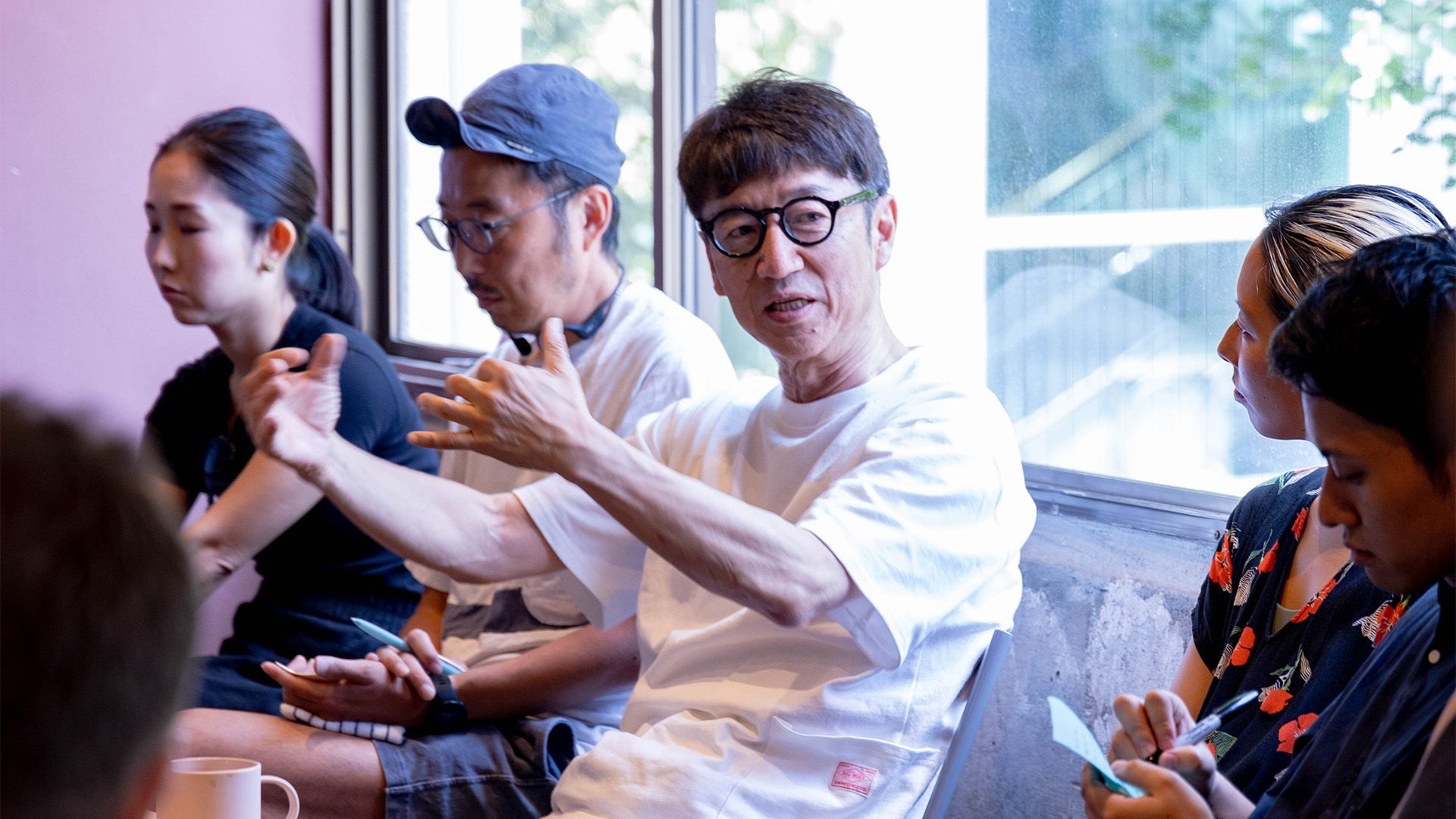Problem definition
Early parts of the program involved defining learning innovation problem spaces in workshops with the MBS& team.
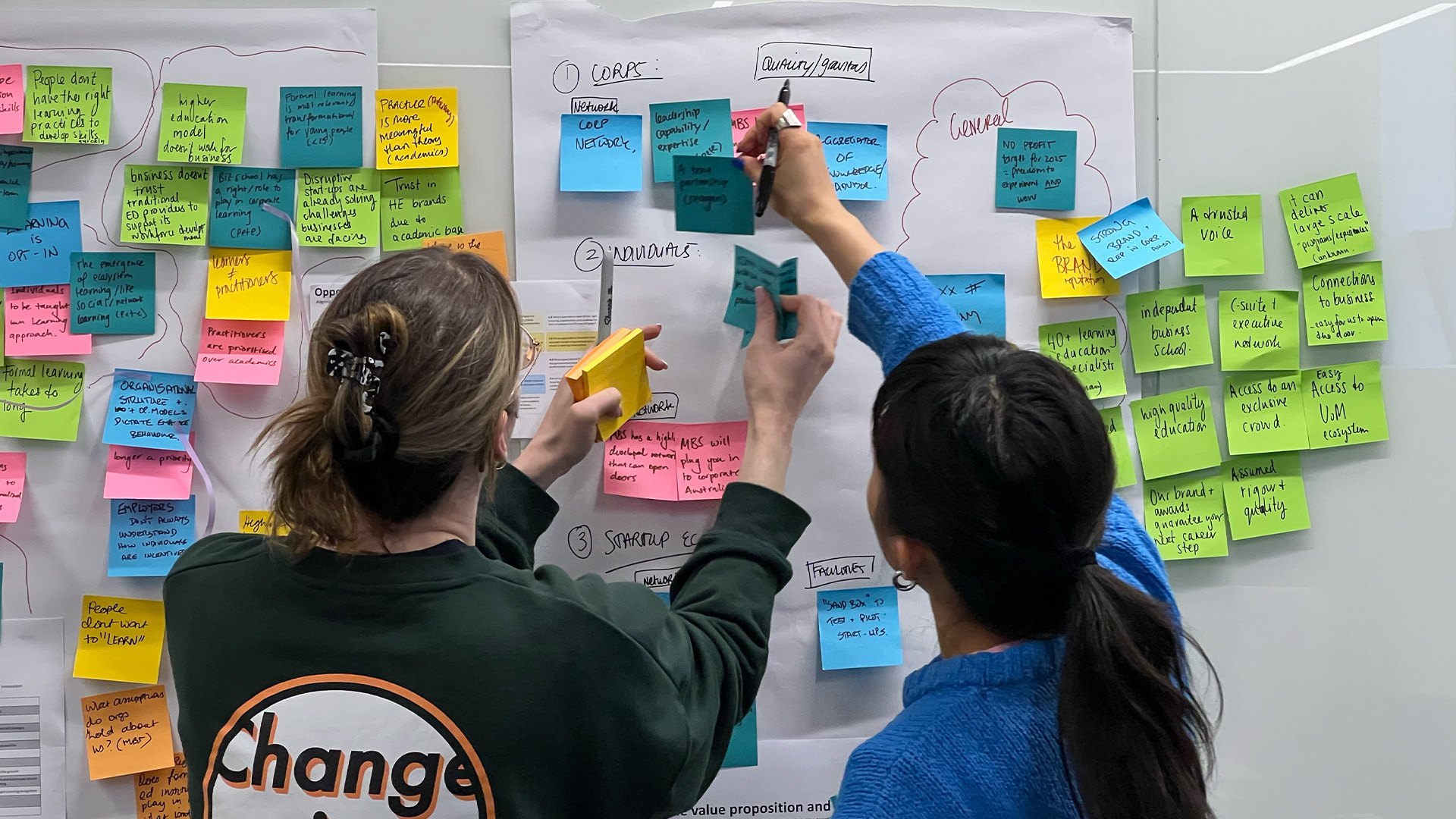
Melbourne Business School needed a partner to design and drive a repeatable model for creating new and innovative revenue-generating ideas focused on the future of work and learning.
They had established MBS&, their innovation lab, with the mission of being: “A catalyst for trailblazers to solve the biggest learning problems and launch innovations that redefine how curious learners and organisations grow.”
A beta incubator program would be the initial vehicle for achieving this mission, proving out the innovation model through a series of new ventures.
MBS& needed support to define processes with their team, upskill and expand their capabilities, build confidence across the organisation, and lay the foundation for the program to operate and succeed.
As the leading business school in Australia, backed by business for business, MBS were in a unique position to create a different approach to learning innovation that sits outside traditional academic, corporate, or startup structures.
Early parts of the program involved defining learning innovation problem spaces in workshops with the MBS& team.

We worked with the MBS& team to design a bespoke incubator program that outlined the process and capabilities to identify and launch new ventures.
Design thinking approaches were adapted to their unique organisational context, from market scanning through to prototyping and business case development, with repeatable methods created in collaboration with MBS& team members.
We anchored this around a desirability, feasibility, and viability model, while adding key lenses for MBS& including sustainability and organisational capability.
A series of research activities were planned with a focus on gathering customer and market perspectives, with robust data synthesis to ensure ventures could be executed and were aligned to MBS& strategic objectives.
Learning while doing was an additional objective of the incubator, building capability by: designing an innovation playbook, leading reflective sessions within the team, and engaging advocates across MBS and the broader ecosystem.
Over 12 weeks we then collaborated with MBS& team on each phase of the innovation process, from exploration through to ideation, prototyping, and early funding rounds.
1. Orientation: Establishing ways of working and guardrails to ensure smooth collaboration and delivery.
2. Exploration: Unpacking broad territories of focus for thematic scope of the program and clarifying opportunity spaces.
3. Ideation: Discovery of new, creative solutions and analysis of the business models behind them.
4. Prototyping: Bringing ideas to life through a series of prototyping methods to draw out critical user and stakeholder insights, while building robust business cases and delivery roadmaps.
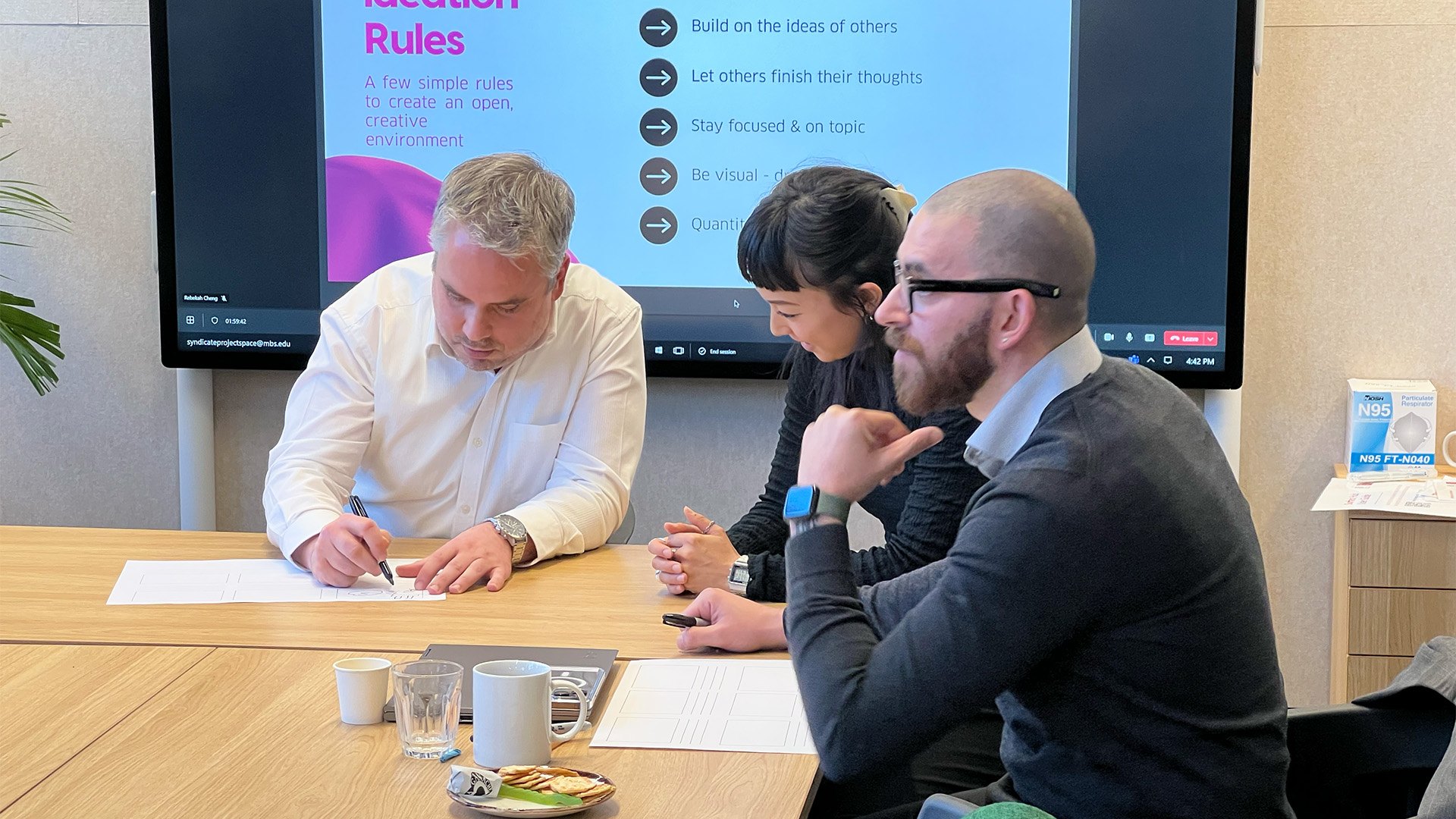
Initial storyboards, paper prototypes, and wireframes used for customer testing, through to clickable prototypes to support the business case.
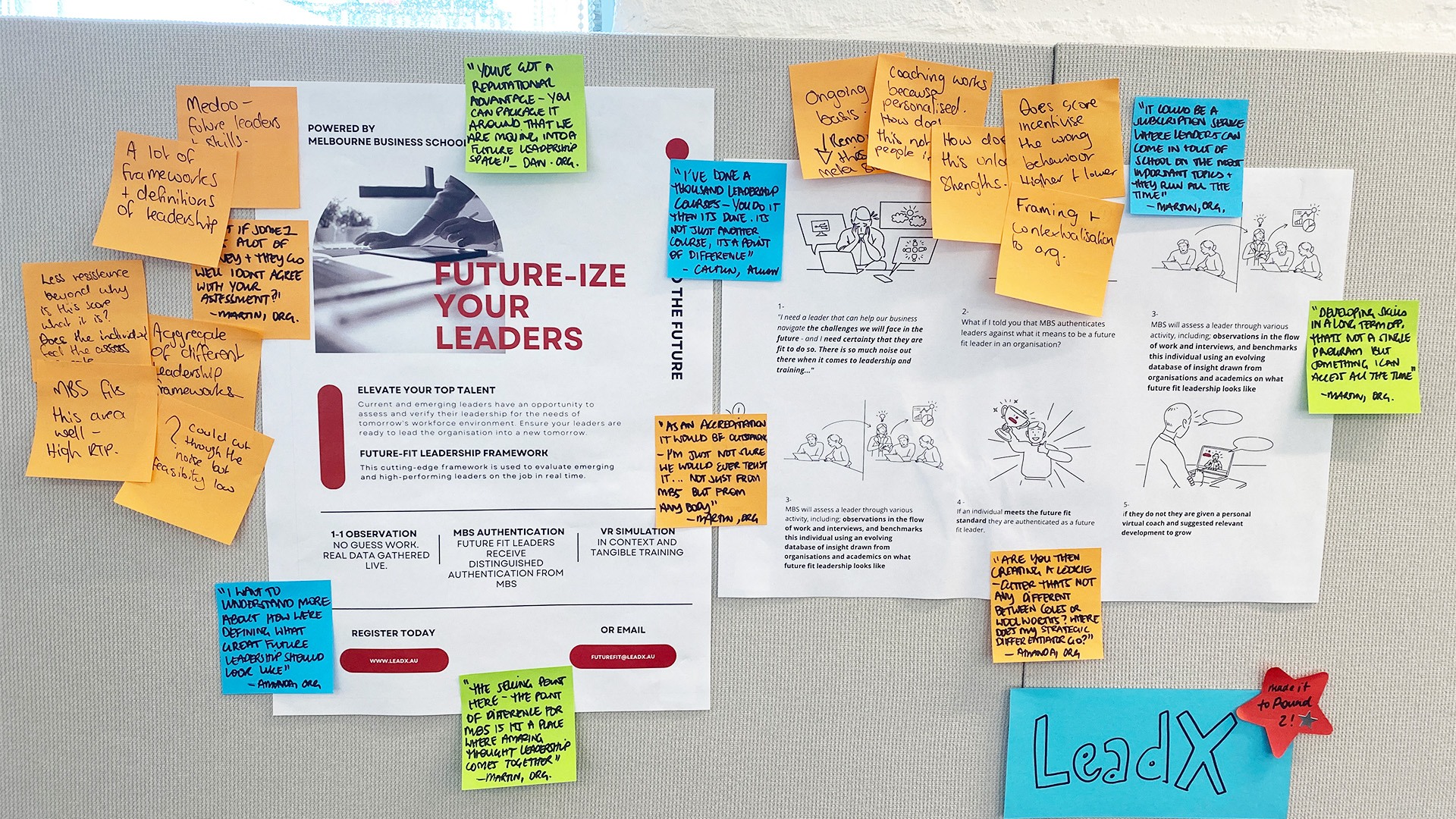
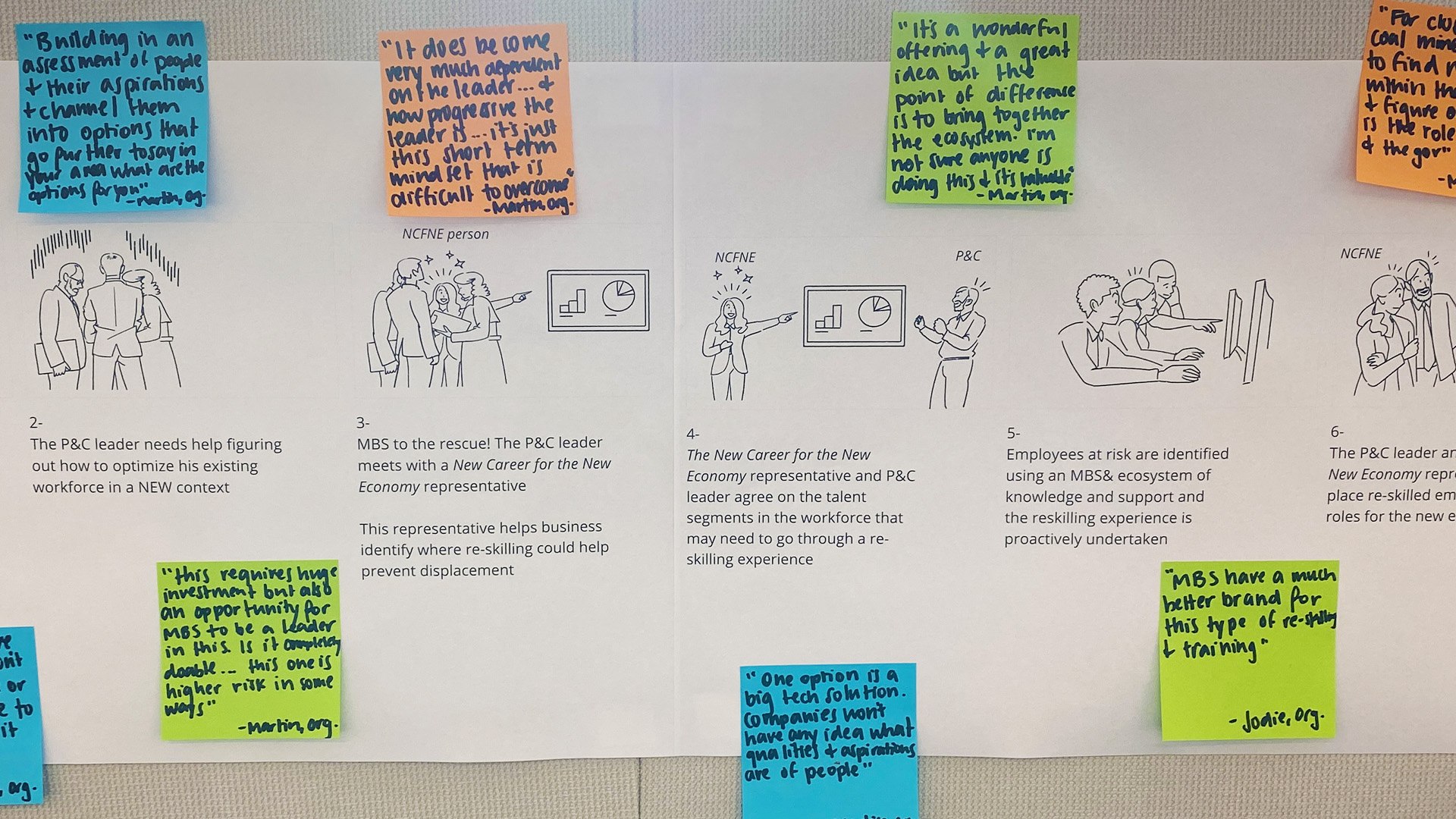
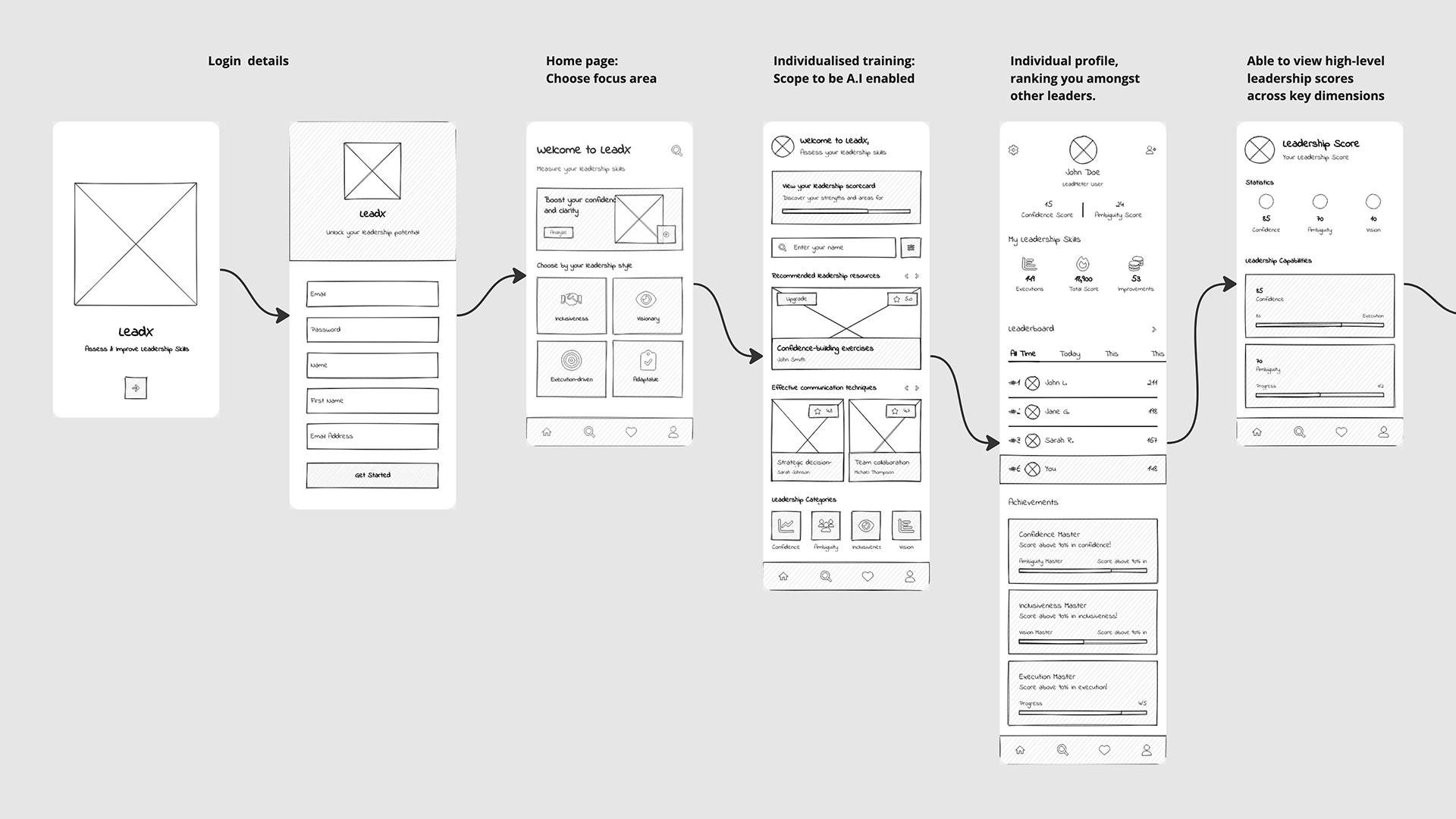
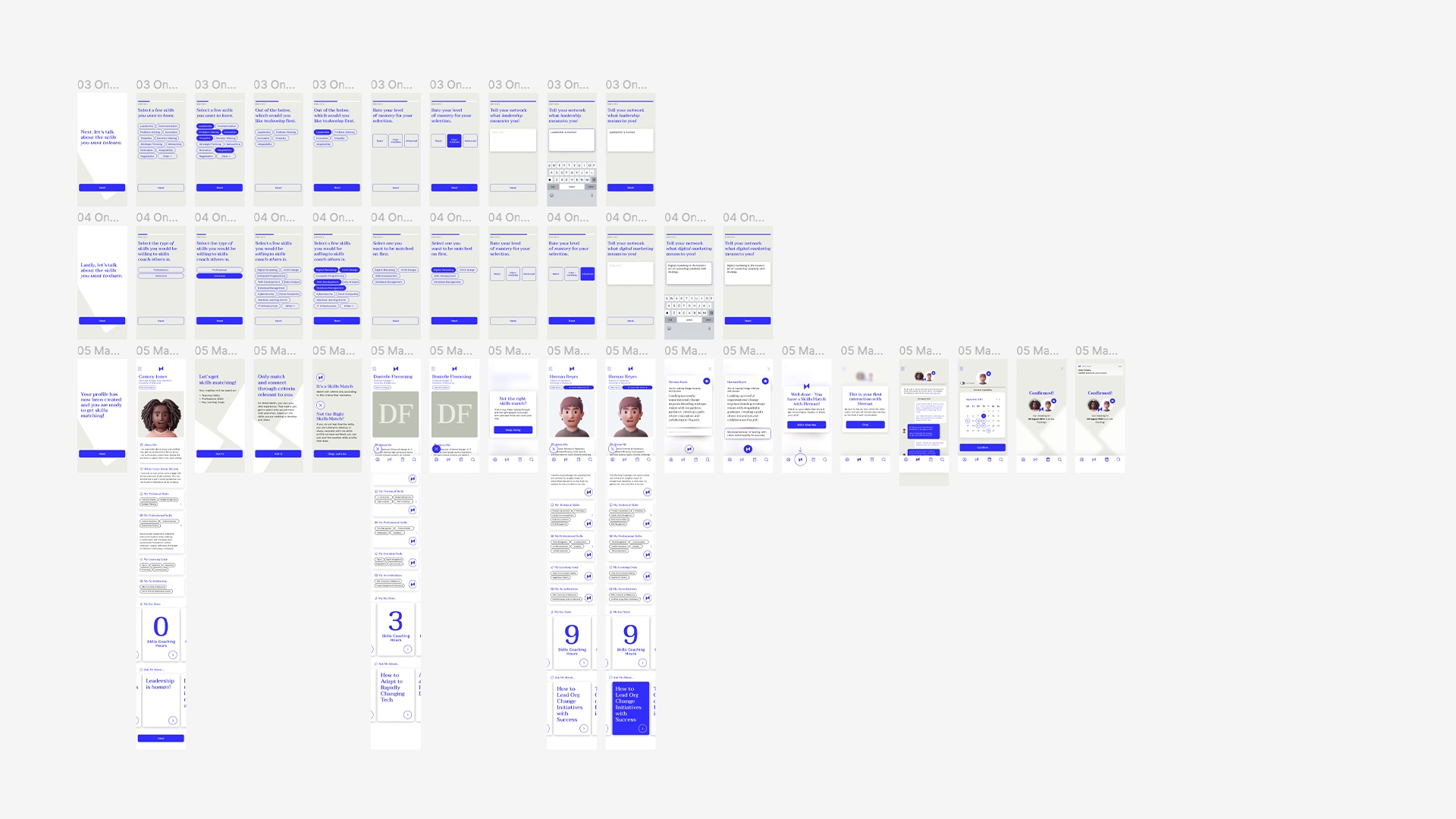
Together we took over 60 concepts identified in the innovation process and rigorously assessed them, leading to a high fidelity prototype and business case for the biggest opportunity, ready to be taken into development and funding.
MBS& also had a backlog of new venture ideas to explore further, a repeatable innovation model, and an empowered and energised team ready to push the future of learning forward.
Our key MBS& stakeholders shared that: “The beta program was a huge success, unlocking the future of our pipeline and venture strategy, and proving out our innovation process with the team we’ve always dreamed about”.
We’re continuing the collaboration into 2024, iterating the program to create a continuous innovation pipeline across horizons and opportunity spaces.
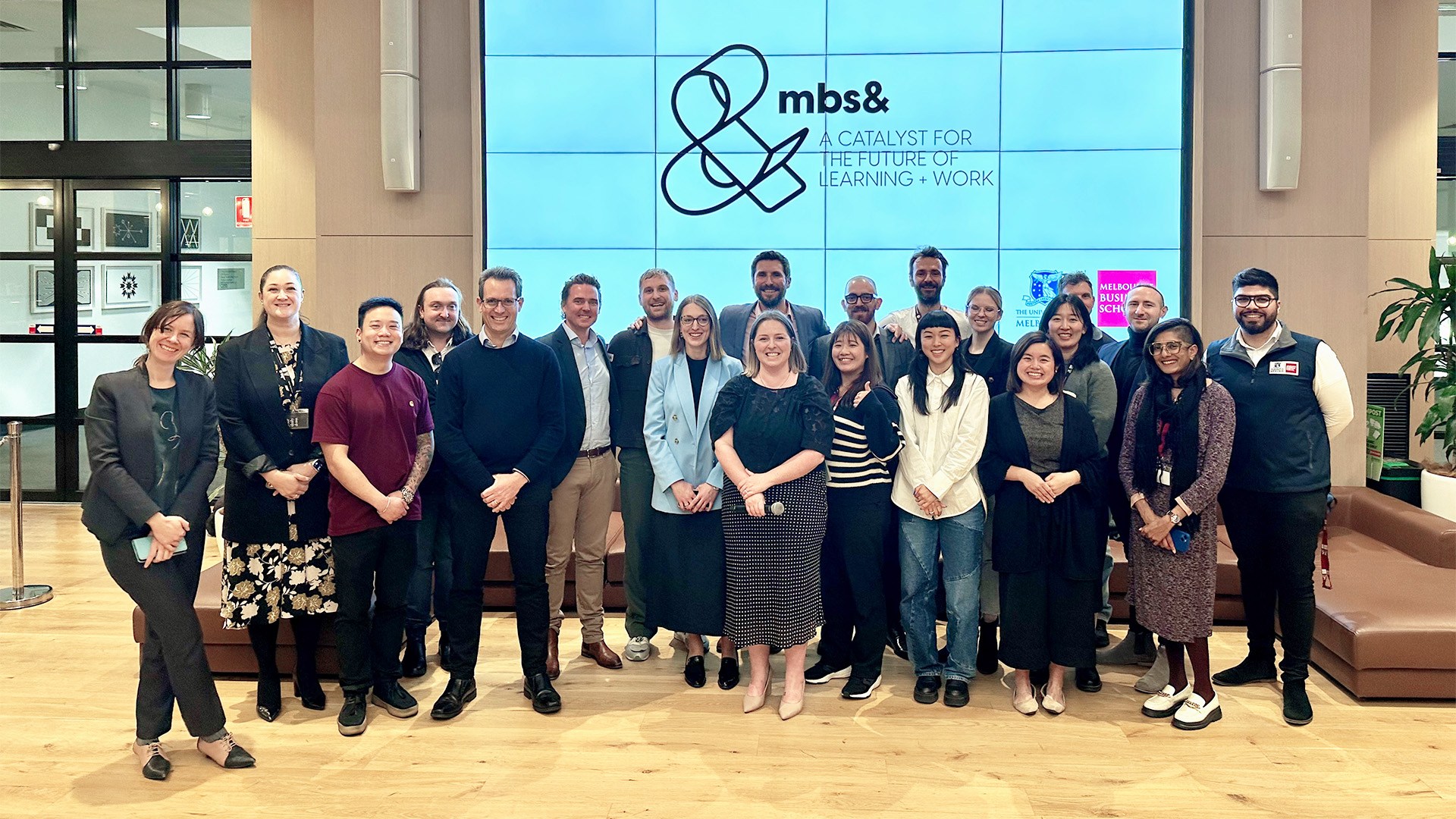
A special thank you to all contributors to the program.
Dr. Stefanie Di Russo
Strategic Design Director
Maya Horie
Senior Strategic Designer
Rebekah Cheng
Senior Program Manager / Strategic Designer
Dingo Francisco
Senior Visual Designer
Nico Leonard
Business Director
Louise Exton
Viability Consultant
Ellen Sullivan
Director
Teagan Donnelly
Head of Innovation
Peter Komsta
Head of Venture Partnerships
Alexander Horton
Community Manager
Luke Myers
Innovation & Commercial Strategy
Dr. Nora Koslowski
Chief Learning Innovation Officer
